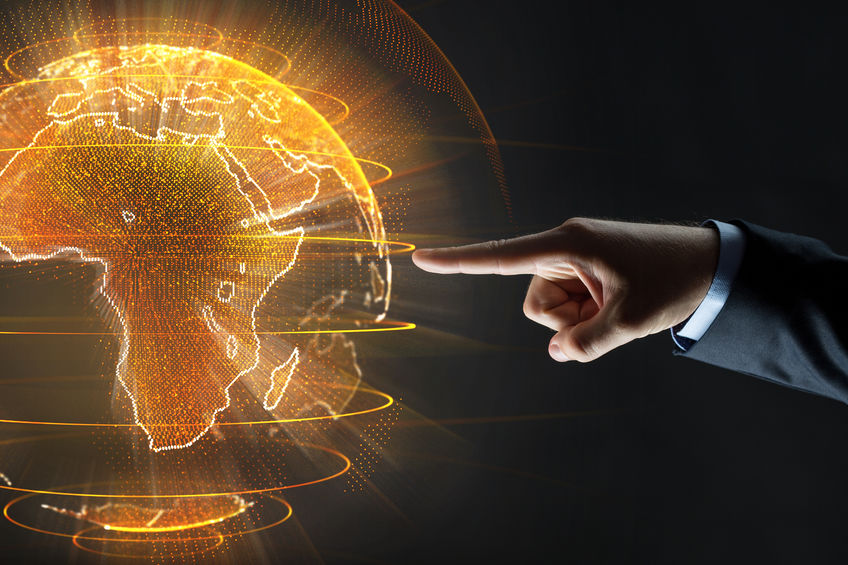Eight years ago the World Economic Forum warned that a climate catastrophe was a “real possibility.” And last August, Politico’s informed us that, “Climate catastrophe is here!”
Choi based his conclusion on the Working Group I contribution to the “Sixth Assessment Report” of the United Nations’ Intergovernmental Panel on Climate Change, which he announced contained no scenario in which the world avoids surpassing 1.5oC of global warming.
And what does this mean? Earth science student Joe Marshall sums it up this way: “Above 1.5oC of warming, many parts of our planet start to become uninhabitable.”
In 2018, climate scientists warned that, without drastic action now, Earth will face unending extreme drought, devastating wildfires, massive floods, deadly hurricanes, and widespread famines that will more than decimate the world’s population. According to the Natural Resources Defense Council, we had 20 years to rid the world of fossil fuels; but the Guardian lowered the time frame to just 12 years.
Sadly, the Russia-Ukraine conflict has ensured that “drastic action” on climate will not be happening any time soon. The once-climate conscious West is now scrambling to find more fossil fuels to help in the war effort (as they buy Russian oil and gas that fuels the war).
And there you have it. It’s the end of the world as we know—and it is all because of human arrogance and greed. And, of course, the greediest and most arrogant are Americans who oppose unilateral abandonment of fossil fuels—not the Chinese who are building thousands of coal-fired power plants. But what does it matter, who is to blame?
President Biden acknowledges that his military advisors (whose great victory in Afghanistan proves their infallibility) are convinced that global warming (er, climate change) is the greatest threat to our national security. European leaders agree. Russians, however, see global warming as a huge blessing, turning tundra into cropland and weakening all its rivals. China could care less as it seeks to placate a muzzled citizenry with once unobtainable goods.
But it gets worse. Mother Nature may do the job for us first, whether from an increase in volcanic activity, direct hits from a comet, meteor, or asteroid, or any of a number of other potential intergalactic events.
So, knowing that the end is near, what should we do?
One thing is NOT to spend money on a foolish campaign to decarbonize solely to ward off the inevitable. That only empowers the Chinese, Indians, and Russians (and of course those who talk the climate game while enjoying air conditioning, private jets, luxury homes, and other benefits of an advanced society) to continue their plans for domination of the remaining future.
Perhaps we are as Nineveh in the days of Jonah—that is, there might be a reprieve from doom. But what is repentance in our day? Should we bury our talents for fear we might misuse them?
Or should we invest in the lives of others—say, Africans who for centuries the West have raided for human labor, raw materials, extreme sports (including big game hunting), and agricultural goods (from coffee to vegetables).
Horror of horrors, investing in Africa on African terms runs counter to the West’s passion for economic suicide. Africa, after all, has huge reserves of fossil fuels and even of rare-earth metals and other ores desirable to the green energy advocates (which cannot be developed without major upgrades to African electric grids, transportation corridors, and health care [or disease prevention]).
Lately there has been much talk of genocide by the Chinese against the Uighurs, by Russia in Ukraine (and vice versa), and even of America’s conservatives. But a much greater genocide by default has been going on in Africa for decades—and no, not the Rwandan genocide perpetrated by Africans against fellow Africans.
Just on the medical front, lack of access to medicines, vaccines, and other health services continues to be a significant reason that 15 million Africans die each decade of malaria, tuberculosis, and HIV-related illnesses (even more from other Africa-centric diseases). African political leaders and development experts blame Western pharmaceutical firms for interfering with African efforts to manufacture or import affordable generic medicines and vaccines.
The energy and electricity front has been an even worse nightmare for Africans eager to tie into the world economy and create prosperous businesses that feed their families and communities. The imperialist United Nations decades ago imposed its “Sustainable Development Goals” that discourage or even ban Western financing of African fossil fuel projects.
A prosperous, free Africa could feed the world, provide much needed raw materials and even finished products. And an Africa with adequate infrastructure could educate scientists, engineers, architects, poets, and diplomats who could help in the transition from oligarchy toward true equality of opportunity. But the key to African prosperity runs through the hated, maligned, and demonized fossil fuel industry.
So why has the West worked overtime to dissuade Africans from developing their resources, building a highway system, or even expanding their ability to combat pestilence and disease? The West ended malaria with DDT, then banned its use in Africa, leaving the continent with millions dead, hundreds of millions of productive hours lost to illness, and families crushed with high youth mortality.
So is climate change Africa’s greatest threat? Or is it—as the 2020 African Youth Survey revealed—the failure of the developed world to help Africa fight infectious diseases that kill millions annually, but are hardly a problem in nations with clean water, sanitation, well-staffed medical facilities, and highways that enable rapid transport of people to such facilities.
The world may indeed be coming to a miserable end, but rather than spend our remaining hours throwing good money into black holes, maybe we could divert a few of those dollars to investing in the future of the world’s largest continent? What have we got to lose?
